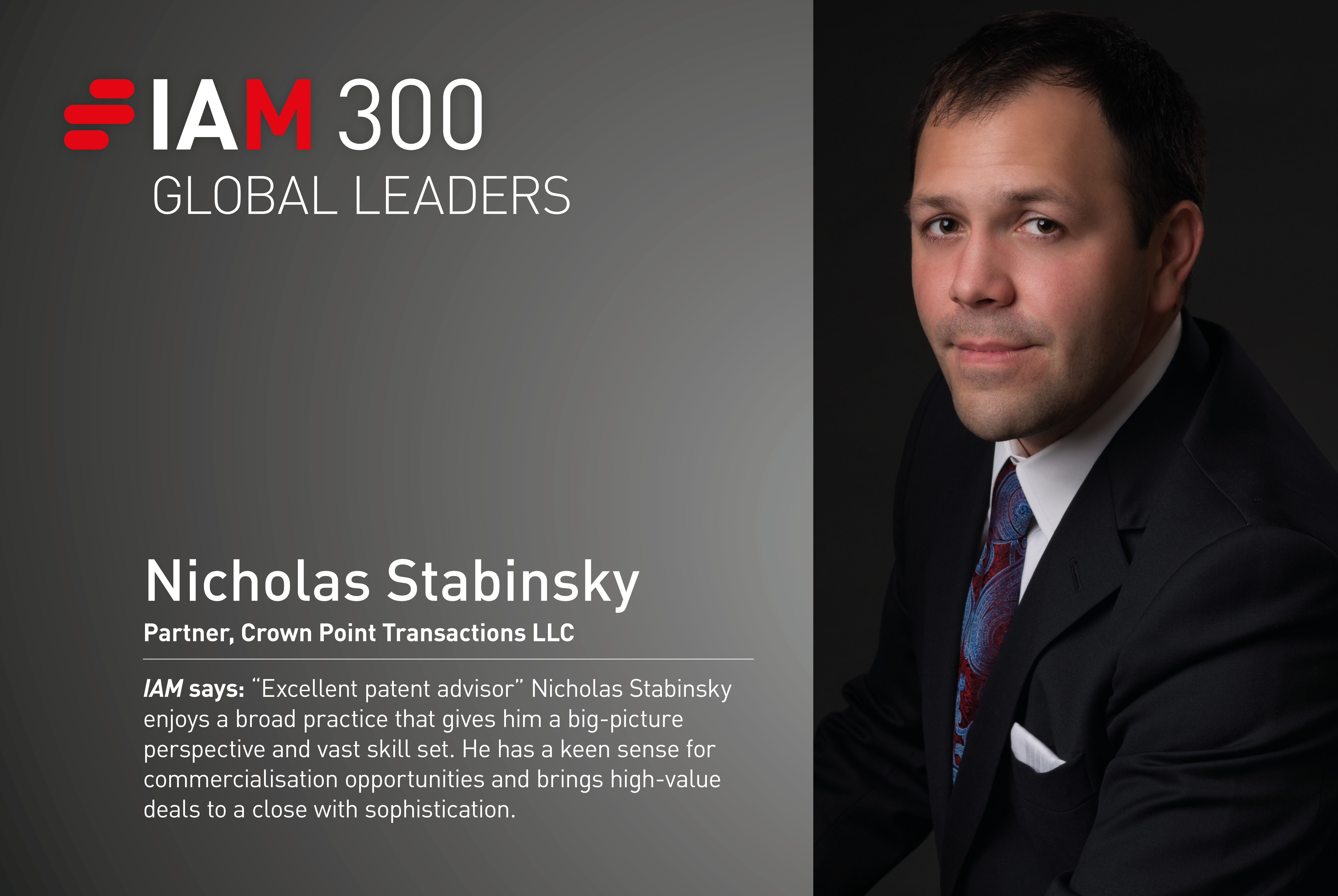Nicholas Stabinsky
What advice do you have for anyone considering a career in intellectual property?
Generally, I encourage people to work or intern in as many different industries and companies as possible before committing to a specific career path or spending money on graduate school. The IP field, however, is somewhat distinct from many others because it requires most participants to have a solid understanding of business, law and, for those who want to jump into patent-related work, a technical background. Other professional career paths do not often require such a high degree of intersectionality. For example, you can be a great doctor without ever really understanding the law or business of being a doctor.
Due to the high degree of specialisation, I strongly encourage people to first get a more common business or legal-oriented job. Try to expose yourself to IP-focused projects before you invest in law school or make long-term career decisions. I also tell people to get comfortable with conflict and uncertainty. Anyone who has paid attention to IP law in the United States over the past 15 years can tell you that changes in the law come unexpectedly and can have outsized effects.
What, for you, are the most crucial steps of any IP monetisation process?
IP monetisation can take many forms, from mutually beneficial tech transfer processes to IP sales or litigation. Each form requires different levels and types of diligence. It is critical to understand what level of diligence is really required to be successful in monetising the intellectual property. All too often, I see parties offering patents for sale with pretty pictures and grand projections on market size without any discussion of what the actual addressable market is and how the monetisers will achieve those results. Understanding the end path to monetisation is critical to a diligence process and outcome. This also dovetails with another crucial issue: every rights holder believes that their intellectual property is valid and worth a tremendous amount of money. Understanding the actual end path to monetisation forces stakeholders to appreciate the project risks and subsequent valuations.
What changes would you make to the US patent system and do you think they are likely to happen?
I could probably write a book about the changes that I would like to see in the US patent system. At a high level, the United States needs to focus on minimising economic friction while better balancing equities between innovators and accused infringers. I would love to see legislatures and the courts strive to reduce systemic uncertainty (eg, §101), reduce or bifurcate system costs (eg, less expensive enforcement routes) and reduce barriers to out-of-court negotiation and settlement (eg, disclosure, discovery, damages and supremacy issues). Arguably, very few parties benefit from a system that requires $20 million and five years to find out if a patent is valid and infringed.
How do you manage expectations and maintain close working relationships with clients when the stakes are so high?
I have been fortunate to work on great projects that have made clients hundreds of millions of dollars. Inherently, large projects take time – especially in the IP world. Some of my individual projects have lasted more than eight years. During those long-duration projects, legal uncertainty is usually what creates friction. It can be challenging to explain to a client that new case law has dramatically changed your monetisation strategy – or worse, the value of the intellectual property. However, it is crucial to remember that managing these relationships, like any shorter project, is a marathon that requires trust. I have found that showing sincerity, competency and alignment of interests with our clients often builds a foundation of trust and demonstrates that we are working hard to secure the best outcomes. Of course, under-promising and over-delivering is key, along with constant communication.
What has been you proudest professional achievement to date?
Personally, I am proud of how many of our clients have worked with us for five or more years, even across business transitions. We have had numerous clients move to new companies or law firms and introduce their new team to us while simultaneously maintaining relationships with their former companies. Their continued, multi-year confidence in our services is, personally, my proudest achievement.
Nicholas Stabinsky
Partner
[email protected]
Nicholas Stabinsky is a partner at Crown Point Transactions and US IP attorney with a German LLM. He has 18+ years of experience and advises clients worldwide on a broad range of IP issues, offensively and defensively, from strategy, growth and risk management to brokering, licensing and litigation. Mr Stabinsky has successfully closed nearly half a billion dollars in deals, mitigated hundreds of millions in liability, and valued large portfolios exceeding one billion dollars.
